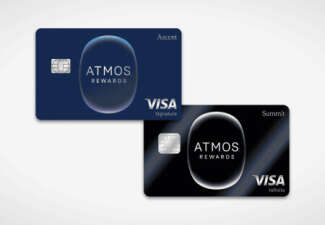The content on this page is accurate as of the posting date; however, some of the offers mentioned may have expired.
Today applying for a credit card is as easy as just hitting an 'apply' button. On the other hand, getting approved for a credit card is not that simple. Credit card issuers review different criteria when they decide whether you qualify for a card. And in this situation, you are left with a choice - either you leave it up to fate or take everything into your own hands and try to influence your bank's decision.
Here's what you can do to maximize your odds of approval for a credit card.
Know Your Credit Score
Your credit score is a key element for issuers and defines your eligibility for a credit card. Lenders look at credit scores to determine how responsible you are with borrowing and repaying money. It's important to know your credit score and monitor any changes in your credit reports and credit scores.
Typically, cards with best perks and bonuses are for people with good and excellent credit. If you need to build credit, consider secured credit cards or cards for poor credit. If you don't know your current credit score, check it with all three major credit bureaus - Experian TransUnion and Equifax. Most issuers use FICO scoring models where your credit score may fall in bad, fair, good or excellent credit range. Credit score ranges vary across creditors and score types. For base FICO® Scores, the credit score ranges are:
- 300 to 579†: Bad/Poor credit
- 580 to 669†: Fair credit, also called "average credit"
- 670 to 739†: Good credit
- 740 to 799†: Very good credit
- 800 to 850†: Exceptional credit (aka 'excellent credit')
Note that your credit score may vary depending on which credit bureau you check with, because they use different formulas. If the number is lower than you expected, check your credit report to see what's causing the problem and then try to handle it.
Compare the Offers
There's no need to rush and pick the first hot offer you see. That way you may well end up ruining your credit. For example, instant decision cards or cards too easy to get may leave you with fees that will make you eternally curse the day you decided to go with this card.
On the other hand, it's also imprudent to apply for the cards that you have low chances of approval for. Don't forget that each credit card application ends up on your credit report, and you may lose points. Carefully examine the credit card's requirements. The things that may alienate a credit card issuer are the following:
- you are under 18
- you have an undischarged bankruptcy
- you have excessive debt
- you have a bad credit due to irresponsible credit use
- you have recent late payments in your credit report
- you have no or low income
- you have too many recent applications for credit cards.
Before you apply, go through this list and put ticks against the things that may hinder you in getting a credit card. Knowing more about yourself as a potential lender will improve your chances of approval.
Keep Your Balances Low
Lenders look at your credit utilization rate when weighing how reliable or risky you are as an applicant. Credit utilization is the total amount of credit you are using compared to the total credit you have available.
Using less than 30% of your available credit (in total and on each individual revolving account) can help your credit score. If you aim to keep your utilization ratio in the single digits, it will be even better for your credit and overall creditworthiness.
Make On-Time Payments
The best thing you can do for your credit (and your approval odds) is to always pay your bills on time. Your debt payment history is the most important factor in determining your credit score. A strong payment history may boost your scores.
Late payments can remain on your credit reports for up to seven years. This means they will be affecting your credit scores while they are on your credit reports. So avoid late payments, especially if you plan to apply for a credit card or other loan in the future.
Avoid Applying for Too Many Cards at Once
When you apply for a credit card, you'll receive a hard inquiry on your credit reports for every card application you submit. Each credit inquiry may temporarily decrease your credit scores by around five points. Apply for too many credit cards and you may significantly lower your score, which may make you appear risky to lenders.
Apply for Cards in Your Score Range
Credit card issuers usually indicate recommended credit score for each credit card they offer. Thus, knowing your credit score, you can see whether your score falls into the recommended score range with a certain credit card and avoid credit denial.
Get Pre-Approved Before You Apply
Checking if you're pre-approved can help you see which cards you might be eligible for. Many major credit card issuers offer pre-approval tools allowing users to compare credit card offers. Such prequalification tools offer you to answer several simple questions and won't hurt your credit scores.
Being prequalified does not guarantee approval. When you choose a credit card and continue your application, you will need to fill out a full application form and the issuer can perform a hard pull to determine your eligibility and provide final approval decision. Still, using preapproval tools is a good way to determine your odds for approval and filter out the offers you won't qualify.






